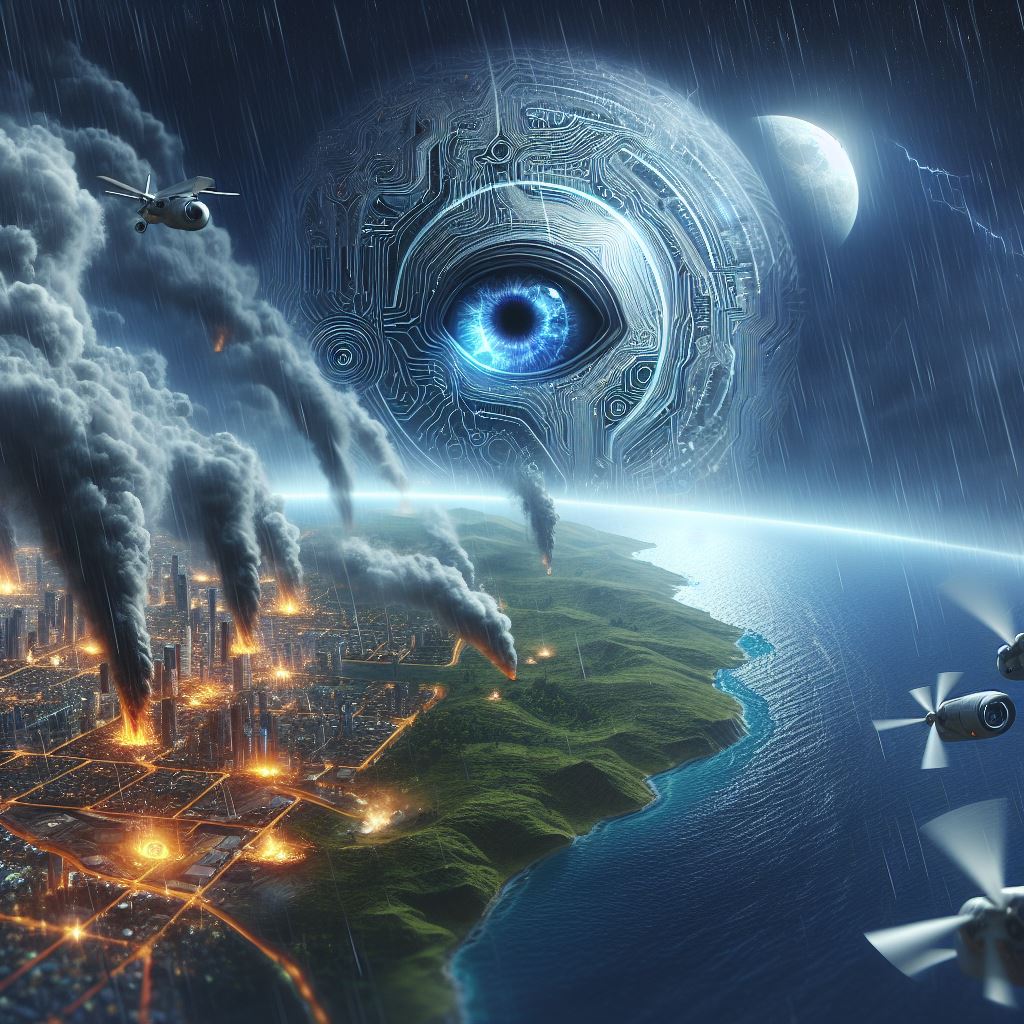THE artificial intelligence and natural disasters are intrinsically linked in the search for prevention and mitigation solutions, that is, measures that are taken to reduce the severity, impact or effects of natural disasters.
The application of artificial intelligence and natural disasters is becoming an essential tool in preventing these events.
By analyzing large volumes of data, AI can predict and monitor natural disasters, helping to minimize damage and protect lives.
We live in a world where natural disasters are, unfortunately, a reality.
Earthquakes, hurricanes, floods and wildfires can cause devastating damage and loss of life.
However, technology is advancing rapidly and one such technology, Artificial Intelligence (AI), is proving to be a valuable tool in preventing and mitigating natural disasters.
In this context, the smart cities emerge as an ideal scenario for the application of artificial intelligence and natural disasters in the prevention of natural disasters.
With their connected infrastructure and integrated data systems, smart cities have the potential to leverage AI to effectively monitor, predict, and respond to natural disasters.
From disaster prediction to damage assessment and reconstruction planning, AI is at the forefront of protecting our communities and the environment.
This article addresses the crucial role of Artificial Intelligence (AI) and smart cities in disaster management, exploring ways in which these technologies are being used to effectively predict, monitor and respond to natural disasters, thereby protecting our communities and the environment.
Special focus is given to the application of AI in smart cities, below you will see ten ways in which it is being used to prevent and mitigate natural disasters.
Table of contents

Artificial Intelligence and Natural Disasters: 10 Ways to Optimize Disaster Prevention
1. Disaster Forecasting
AI can analyze large volumes of weather data to predict natural disasters in advance, enabling preventative action.
2. Real-Time Monitoring
Through the use of sensors and AI, it is possible to monitor environmental conditions in real time to detect signs of potential disasters.
3. Satellite Image Analysis
AI can analyze satellite imagery to identify changes in the environment that could indicate an impending disaster.
4. Simulations
AI can be used to create realistic simulations of natural disasters, helping emergency planners better prepare.
5. Automated Alerts
AI can send automatic alerts to authorities and the general public when it detects signs of a disaster.
6. Damage Assessment
After a disaster, AI can analyze images and data to assess the damage, helping direct recovery efforts.
7. Evacuation Planning
AI can help plan efficient evacuation routes based on traffic data and road conditions.
8. Resource Distribution
AI can help optimize the distribution of emergency resources, ensuring aid reaches where it is needed most.
9. Reconstruction
AI can help plan for reconstruction after a disaster by identifying areas that need more attention.
10. Continuous Learning
AI learns from each disaster, constantly improving its accuracy and effectiveness in preventing natural disasters.
In short, the artificial intelligence in the prevention of natural disasters has enormous potential to save lives and minimize harm.
As technology continues to advance, we can expect to see even more ways in which AI can be used for this purpose.
In conclusion, the artificial intelligence in the prevention of natural disasters is a rapidly growing area of research and application.
With the ability to analyze large volumes of data, accurately predict events, and respond effectively, AI has the potential to transform the way we deal with natural disasters.
As we continue to explore and develop these technologies, we can expect to see even greater advances in disaster prevention and mitigation.
AI is not only a tool to improve the efficiency and effectiveness of our disaster responses, but also a way to protect lives and communities.
The journey is just beginning, and the future looks bright.
Fonte https://www.climatempo.com.br/noticia/2023/06/02/inteligencia-artificial-ajuda-na-prevencao-de-desastres-naturais-0842:
